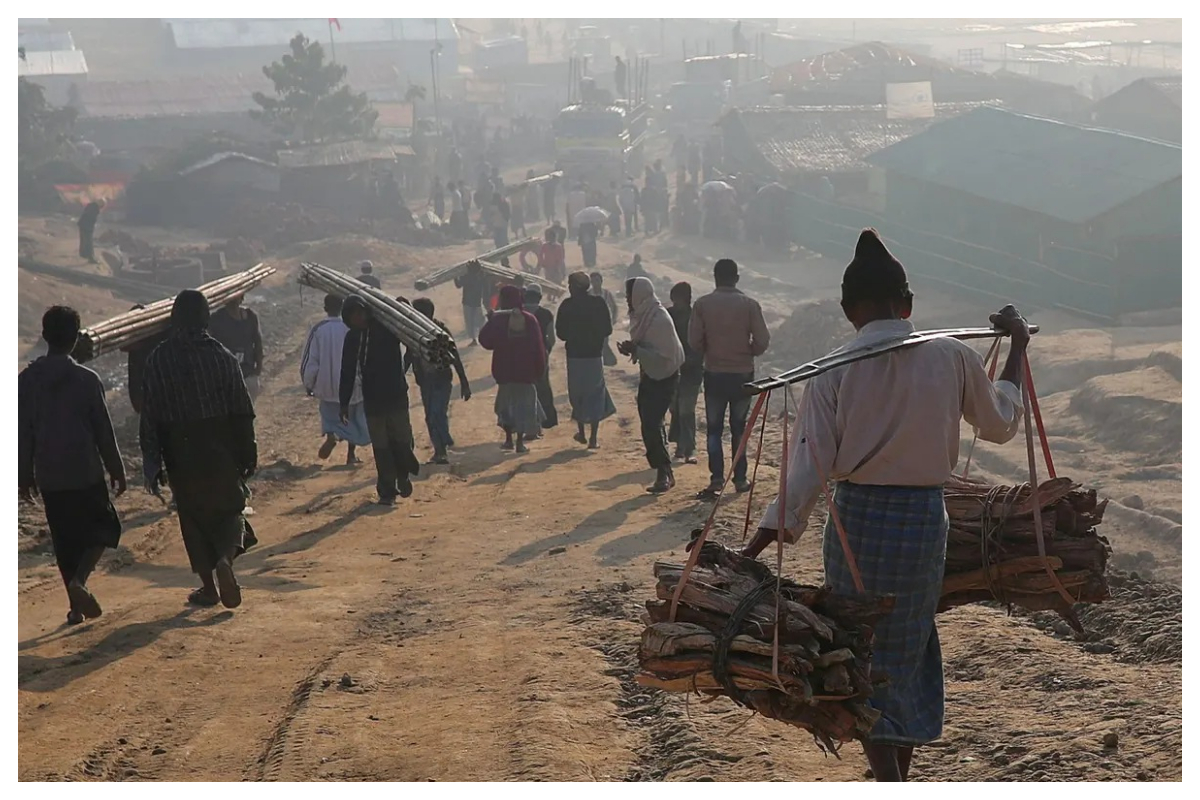- The World Court rejects Myanmar’s objections to a genocide case over its treatment of the Rohingya minority.
- Gambia, which brought the suit, had argued that it lacked standing to bring the case.
- A United Nations fact-finding mission concluded that Myanmar’s military campaign drove 730,000 Rohingya into neighbouring Bangladesh.
The World Court rejected Myanmar’s objections to a genocide case over its treatment of the Muslim Rohingya minority on Friday, clearing the way for the case to be heard in its entirety.
Myanmar, which is now ruled by a military junta that took power in 2021, had argued that Gambia, which brought the suit, lacked standing to do so at the top United Nations court, formally known as the International Court of Justice (ICJ).
However, presiding Judge Joan Donoghue stated that all states that signed the 1948 Genocide Convention could and should act to prevent genocide, and that the court had jurisdiction in the case.
“Gambia, as a state party to the genocide convention, has standing,” she said, reading a summary of the 13-judge panel’s ruling.
The court will now proceed to hear the case on its merits, which will take years.
In 2019, Gambia joined the 57-nation Organization for Islamic Cooperation in a suit aimed at holding Myanmar accountable and preventing further bloodshed.
Outside the courtroom, Gambia Justice Minister Dawda Jallow expressed his “satisfaction” with the decision and expressed confidence that the suit would be successful.
Gambia got involved after his predecessor, Abubacarr Tambadou, a former prosecutor at the UN Rwanda tribunal, visited a refugee camp in Bangladesh and said the stories he heard reminded him of the Rwanda genocide.
A Myanmar representative stated that the government would do its “utmost” to protect the country’s “national interest” in future proceedings.
Outside the court’s gates, protesters waved a red banner with the words “Free Burma” and yelled at cars carrying junta representatives leaving the building after the decision.
A United Nations fact-finding mission concluded that Myanmar’s 2017 military campaign that drove 730,000 Rohingya into neighbouring Bangladesh included “genocidal acts.”
Myanmar has denied genocide, calling the UN report “biassed and flawed.” It claims that its crackdown was directed at Rohingya insurgents who had carried out attacks.
While the Hague court’s decisions are legally binding and are generally followed by countries, there is no way to enforce them.
In a provisional decision issued in 2020, it ordered Myanmar to protect the Rohingya from harm, establishing their legal right as a protected minority under international law.
However, Rohingya groups and rights activists claim that no meaningful efforts have been made to end their systematic persecution.
Myanmar continues to deny Rohingya citizenship and freedom of movement. For the past decade, tens of thousands have been confined in squalid displacement camps.
The Foreign Ministry of Bangladesh welcomed the judgment in a statement.
“For the victims living in the camps in Bangladesh as well as in Myanmar, they see the hope that justice will be delivered to them and that the perpetrators in the Myanmar military will be brought to accountability,” said Ambia Parveen of the European Rohingya Council outside the court.
The junta has imprisoned democratic leader Aung San Suu Kyi, who personally defended Myanmar in The Hague hearings in 2019.
[embedpost slug=”thousands-of-rohingya-refugees-in-bangladesh-rally-to-go-home/”]





















